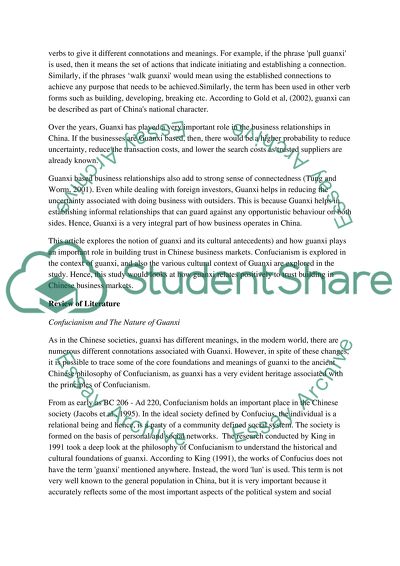Cite this document
(“Guanxi, Cultural Antecedents and Trust Building in Chinese Business Research Paper”, n.d.)
Retrieved from https://studentshare.org/marketing/1394680-guanxi-cultural-antecedents-and-trust-building-in-chinese-business-markets
Retrieved from https://studentshare.org/marketing/1394680-guanxi-cultural-antecedents-and-trust-building-in-chinese-business-markets
(Guanxi, Cultural Antecedents and Trust Building in Chinese Business Research Paper)
https://studentshare.org/marketing/1394680-guanxi-cultural-antecedents-and-trust-building-in-chinese-business-markets.
https://studentshare.org/marketing/1394680-guanxi-cultural-antecedents-and-trust-building-in-chinese-business-markets.
“Guanxi, Cultural Antecedents and Trust Building in Chinese Business Research Paper”, n.d. https://studentshare.org/marketing/1394680-guanxi-cultural-antecedents-and-trust-building-in-chinese-business-markets.


